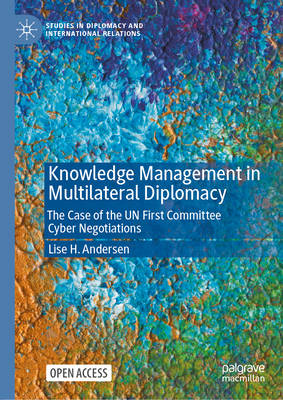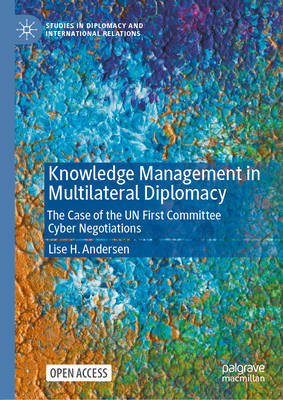
- Afhalen na 1 uur in een winkel met voorraad
- Gratis thuislevering in België vanaf € 30
- Ruim aanbod met 7 miljoen producten
- Afhalen na 1 uur in een winkel met voorraad
- Gratis thuislevering in België vanaf € 30
- Ruim aanbod met 7 miljoen producten
Zoeken
Knowledge Management in Multilateral Diplomacy
The Case of the Un First Committee Cyber Negotiations
Lise H Andersen
€ 53,45
+ 106 punten
Omschrijving
This open access book examines to what extent, and in what form, Knowledge Management (KM) practices have been implemented to handle inputs contributed to the United Nations (UN) First Committee cyber negotiations. With knowledge being the key asset of 21st century Statecraft, how it is managed in the context of complex multilateral negotiations becomes of critical concern, as they define the contours of world order and influence national policies. This book makes a considerable scholarly contribution by developing a methodological blueprint for studying this, and provides the first empirial findings in the area. The book identifies, characterizes and discusses the evolution of the approach taken to KM within the UN First Committee cyber negotiations. It also offers a discussion of how the UN can become a more intentional knowledge manager in its multilateral processes to better support its diplomats, by drawing upon both formal and informal approaches to KM.
Specificaties
Betrokkenen
- Auteur(s):
- Uitgeverij:
Inhoud
- Aantal bladzijden:
- 219
- Taal:
- Engels
- Reeks:
Eigenschappen
- Productcode (EAN):
- 9783032114136
- Verschijningsdatum:
- 25/01/2026
- Uitvoering:
- Hardcover
- Formaat:
- Genaaid
- Afmetingen:
- 148 mm x 210 mm
- Gewicht:
- 405 g

Alleen bij Standaard Boekhandel
+ 106 punten op je klantenkaart van Standaard Boekhandel
Beoordelingen
We publiceren alleen reviews die voldoen aan de voorwaarden voor reviews. Bekijk onze voorwaarden voor reviews.








